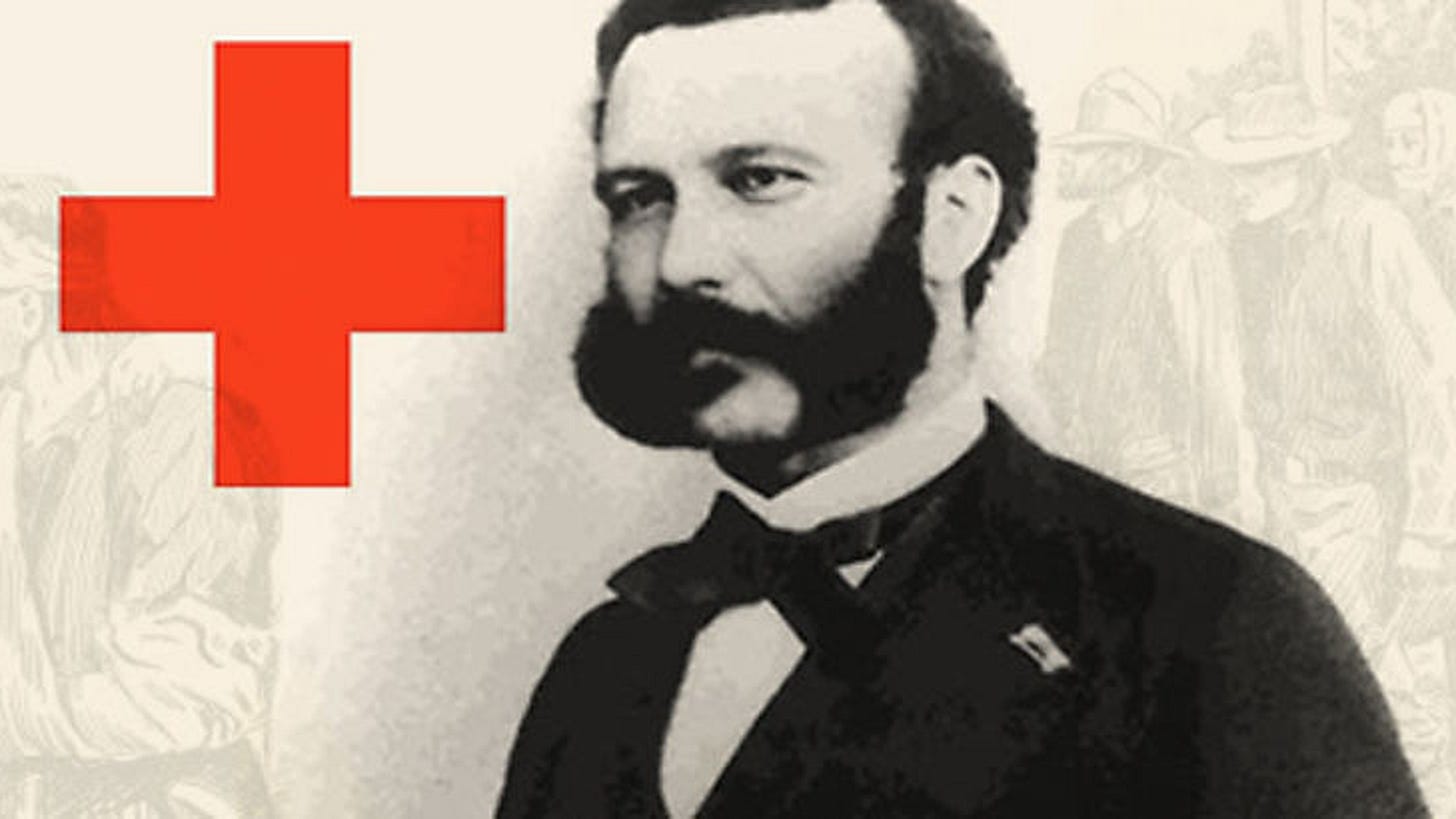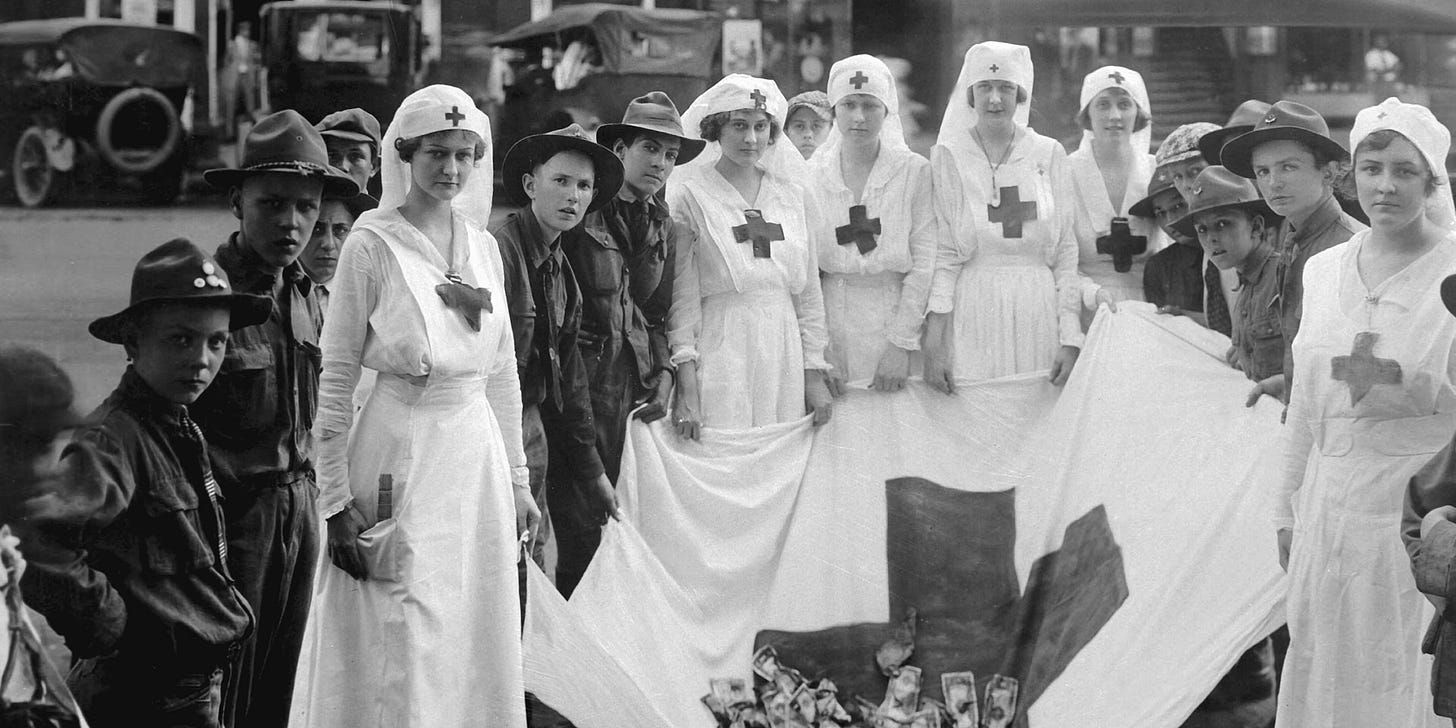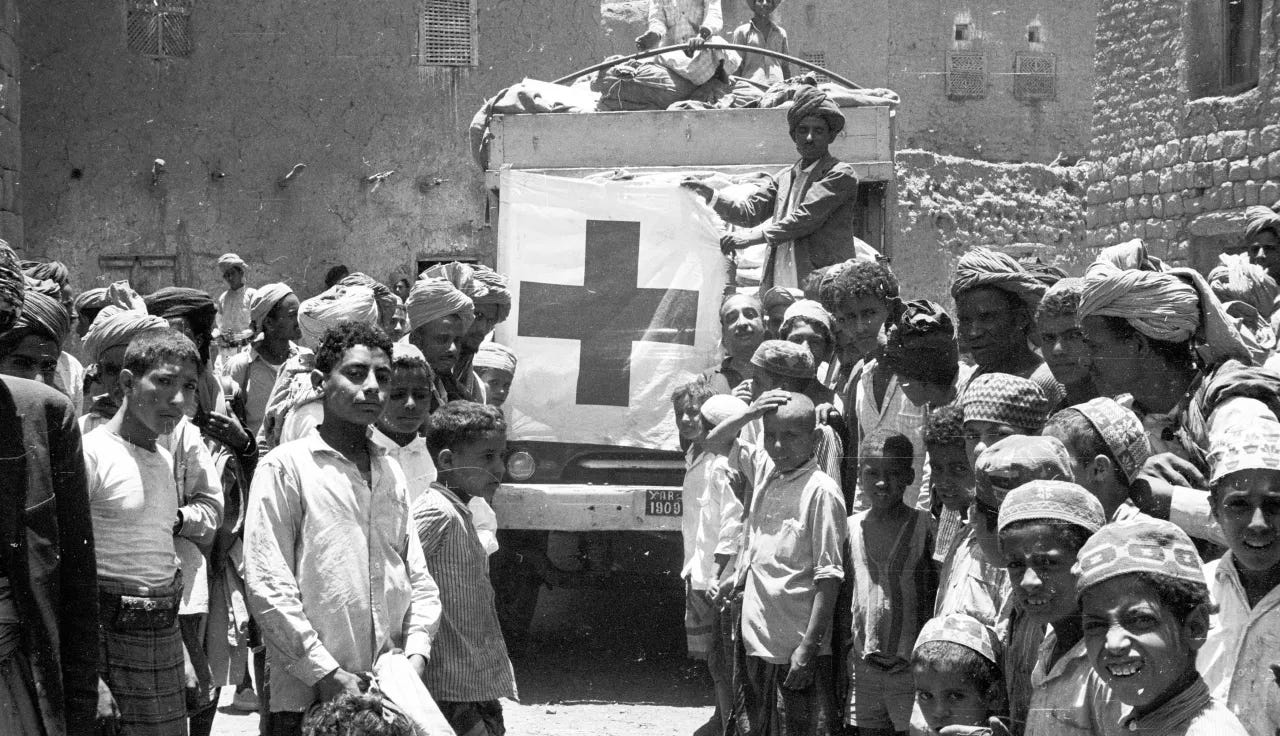On This Day in 1863, Henry Dunant’s Fury at War’s Waste Created the Red Cross
One man’s response to war changed humanitarian aid forever.
A New Kind of Courage
On this day, 29 October 1863, in a modest hall in Geneva, a radical idea was made real. The Red Cross was officially founded, not by governments or armies, but by a man who had seen the worst of war and could not forget it. His name was Henry Dunant, a businessman from Geneva who stumbled across one of the bloodiest battlefields of the 19th century and refused to accept that this was simply how things had to be.
Four years earlier, Dunant had travelled to Italy to meet with Napoleon III to resolve a business issue. Instead, he arrived in the aftermath of the Battle of Solferino, where nearly 40,000 soldiers had been killed or wounded in a single day. The wounded were left where they fell, their cries unanswered, their lives leaking away slowly in the summer heat. There was barely any medical care. Dunant could have turned back. Instead, he walked into the horror and started helping.
He gave water, bandaged wounds, and held dying hands. He did not ask for a passport or a uniform. It did not matter which side the men had fought for. They were broken, and they were human.
A System Built on Mercy
What Dunant saw in Solferino shook him to the core. But he was not content to feel pity. He wanted to make sure no battlefield ever looked like that again.
When he returned home, he wrote and self-published a book, A Memory of Solferino, describing the scenes he had witnessed in brutal detail. He did not soften the truth. Blood, agony, the helplessness of abandoned soldiers, he laid it all bare. But Dunant also proposed a solution. In the book, he called for the formation of permanent volunteer relief organisations in every country, trained and ready to help the wounded in times of war, regardless of nationality.
He sent the book to political leaders, military officers, and influencers across Europe. The reaction was immediate. It stirred something in people who had previously accepted that war meant chaos. Dunant had shown them it did not have to.
By early 1863, he had gathered support from a small group of like-minded individuals in Geneva, forming what would become the International Committee for Relief to the Wounded. They adopted a red cross on a white background as their symbol, a reversal of the Swiss flag, to represent neutrality and protection.
Then, on 29 October 1863, 16 states sent official delegates to Geneva. There, Dunant presented his vision. After hearing the raw testimony of what he had seen in Italy, they agreed. From that moment, the International Red Cross was no longer an idea. It was real.
A Legacy Carved in Compassion
The Red Cross would go on to become one of the most recognisable humanitarian organisations in the world. Its legacy includes the Geneva Conventions, which legally protect the wounded, medical personnel, and civilians in war. None of this would have happened without the actions of one man who was supposed to be chasing a business opportunity but chose instead to face the screams of the dying and do something about it.
Dunant’s vision extended beyond the battlefield. He understood that neutrality was essential. Relief workers could not be seen as allies or enemies. They had to stand apart, guided only by the human need in front of them. This principle still defines the Red Cross and Red Crescent Movement today, across more than 190 countries.
Henry Dunant did not live a life of easy reward. His business collapsed. He spent years in poverty, exiled from Geneva, forgotten by many of the very people he had inspired. But his work endured. In 1901, he was awarded the first Nobel Peace Prize, a recognition not only of what he had done but what he had set in motion.
By then, the Red Cross was already saving lives across continents, from battlefields to disaster zones.
Relevance in Today’s World
The principles Henry Dunant set down in 1863 remain urgent today. In wars across Ukraine, Gaza, Sudan, and beyond, Red Cross and Red Crescent volunteers continue to enter danger zones with no weapons, only bandages, water, and a commitment to humanity.
Their presence is a direct result of what Dunant created. They are his legacy in motion, people who do not ask who started the war, only who needs help. The idea that war should have limits, that there should be rules even in chaos, and that compassion must never take sides, still matters.
More than 150 years after that muddy field in Solferino, the world has not outgrown war. But thanks to Henry Dunant, it has a way to meet suffering with dignity and action.
He didn’t carry a flag. He carried a conviction. That’s what built the Red Cross.




